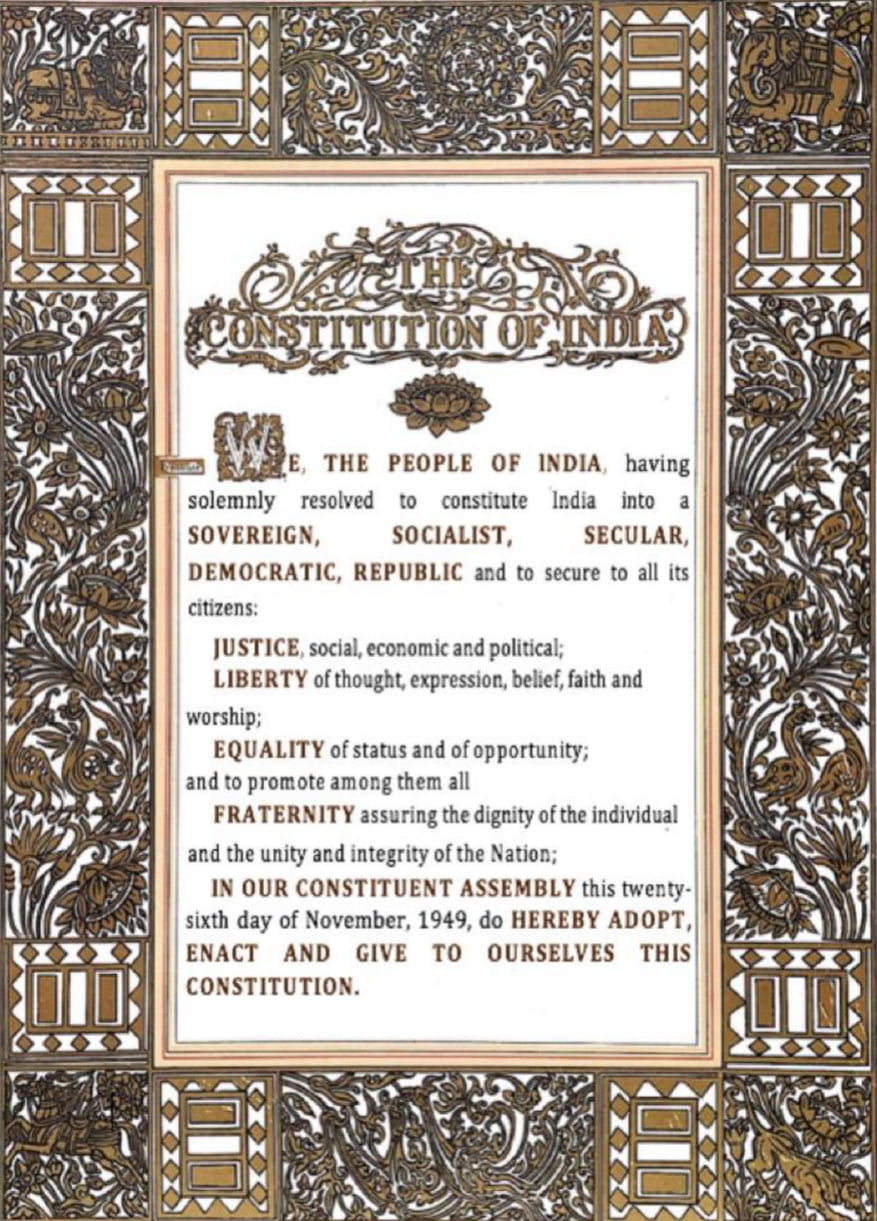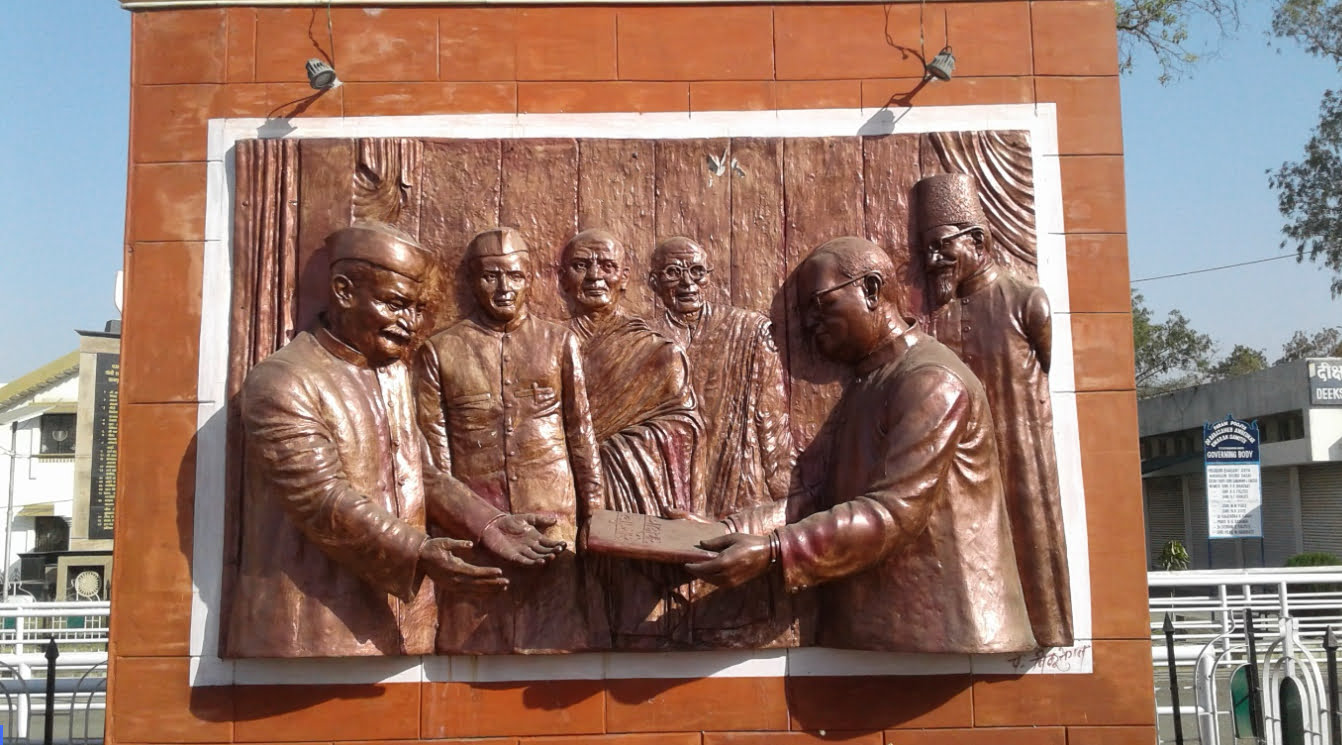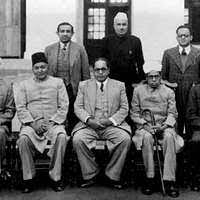The Preamble of the Constitution of India is a brief introductory statement that outlines the fundamental principles, values, and objectives on which the Indian Constitution is based. It is not a set of enforceable laws but serves as a guiding document for understanding the intentions of the makers of the Constitution and the spirit in which the Constitution is meant to be interpreted and implemented. At its heart, the Preamble emphasises the core values of justice, liberty, equality, fraternity, secularity, and democracy, along with India’s sovereign, and democratic character.

Preamble of the Indian Constitution
- Justice: Justice is considered as the foundation of a fair and equitable society. It encompasses three dimensions: social, economic, and political. Social justice means that there is no discrimination or oppression based on caste, creed, gender, religion, or race. Economic justice aims to minimise the gap between the rich and the poor and ensure that everyone has access to the basic necessities of life such as food, clothing, shelter, education, and health. It further ensures that people are paid equally for the labour rendered irrespective of their sex, caste, or social status. Political justice means that there is equal participation and representation of the people in the government.
- Liberty: Liberty in its simplest sense refers to the absence of restraint and being able to do anything that is allowed by the law. The Preamble of the Constitution of India renders its people the freedom of thought, expression, belief, faith, and worship. Liberty also means that there is no undue interference or restriction by the state or any other authority on people’s choices and actions.
- Equality: All citizens of India are treated with utmost dignity and respect without any discrimination based on caste, creed, gender, religion, or race. It also ensures equal opportunity for everyone to access education, employment, health care, and other facilities irrespective of their social and economic status.
- Fraternity: Fraternity fosters a sense of brotherhood and unity among its people and respects their diversity. Fraternity also means that there is dignity of the individual and integrity of the nation.
- Democracy: The Constitution of India provides for a representative democracy meaning that the people we elect during general elections make laws, and the government operates based on the advice from the ministers who are then accountable to these elected officials. It provides the people with the power to choose their leaders and have a say in the government. It upholds the principles of the rule of law, accountability, transparency, and responsiveness in government.
- Sovereign: Sovereignty affirms India’s independence to make decisions without external interference. It also signifies the presence of India’s distinct territory, currency, flag, anthem, and symbols of national importance.
- Socialist: Socialism is another fundamental principle that was added to the Constitution by the 42nd Amendment. Socialism underlines India’s commitment to narrowing the wealth gap and providing equal opportunities.
- Secular: Every citizen is free to choose, practice and profess their religion, and the state is committed to treating all religions equally. Secularism also means that there is no official religion of the state and there is freedom of religion for everyone.

Sculpture of Bodhisattva Dr. B.R. Ambedkar presenting Constitution of India to Dr. Rajendra Prasad | Wikimedia Commons
The 42nd Amendment Act, 1976 of the Indian Constitution
The 42nd Amendment Act of the Indian Constitution, enacted in 1976 under the leadership of Indira Gandhi’s Indian National Congress (R) introduced three new terms into the Constitution’s preamble: “socialist”, “secular”, and “integrity.”
- Socialist: This word was added to reflect India’s aim to reduce the gap between the rich and the poor and provide equal economic opportunities for everyone. The national economy was spearheaded by state-owned enterprises in key sectors and the state was the largest employer.
- Secular: This word was added to show India’s respect for all religions and its commitment to not favour any one religion over another. It further reaffirmed India’s dedication to religious freedom for all, along with the absence of any official state religion.
- Integrity: This word was added to emphasise India’s unity and solidarity among its diverse people and regions. It conveyed India’s resolve to counteract separatist tendencies and safeguard the dignity of both individuals and the nation.
These words were already implicit in the Constitution, but the 42nd Amendment made them explicit in the preamble. However, this amendment was criticised by many as being undemocratic and authoritarian, as it was passed during the Emergency imposed by Indira Gandhi.

Drafting Committee
Significance of the Preamble
The Preamble of the Indian Constitution is a concise yet highly significant part of the Constitution. It serves several key purposes wherein it outlines the fundamental values and objectives on which the Indian Constitution is built. The Preamble states that the authority of the Constitution comes from “We, the people of India.” In other words, the Constitution derives its power from the consent and will of the Indian citizens. This emphasises that the Constitution exists to serve the interests and aspirations of the people.
The preamble in itself is a powerful declaration of the foundational principles and goals of the Indian Constitution. It serves as a moral compass, providing inspiration and direction for the governance of the country while reminding the nation of the principles that should guide its progress and development
